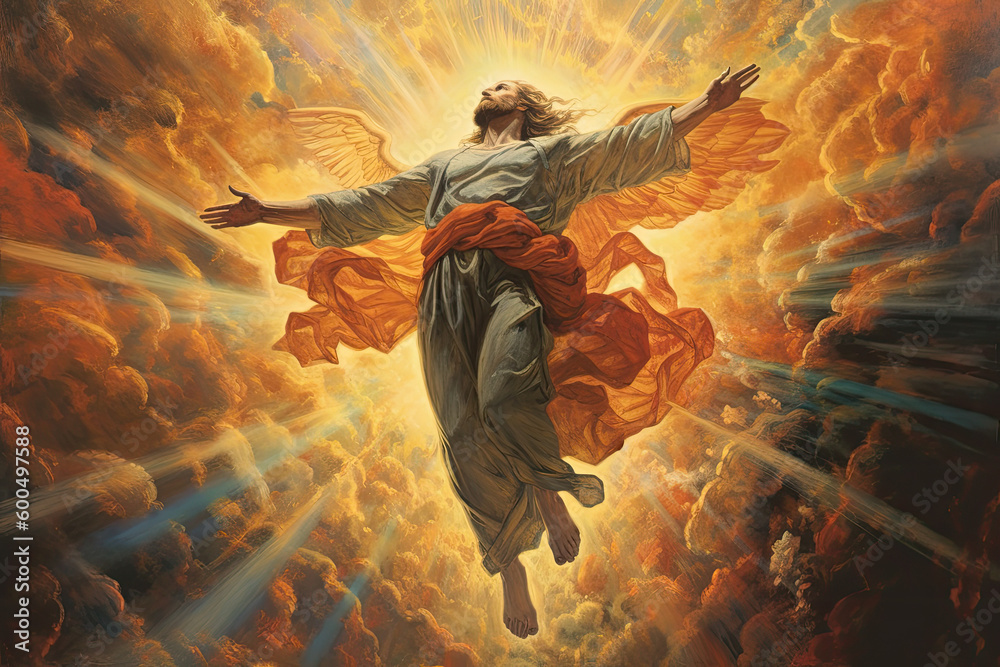The Ascension of Bahá’u’lláh—a momentous event in the Bahá’í Faith’s narrative—is not merely a historical occurrence but a profound spiritual milestone that speaks to the essence of sacrifice, justice, and the unyielding spirit of truth. As we delve into this topic, one might ponder: how does the ascension of a religious leader echo in the lives of contemporary followers? This inquiry beckons us to reflect on the implications of Bahá’u’lláh’s life and teachings, particularly regarding his role as a prisoner of conscience and the overarching themes of liberation and enlightenment within his doctrine.
Bahá’u’lláh, regarded as the founder of the Bahá’í Faith, faced excruciating trials as a result of his revolutionary beliefs—ranging from imprisonment to exile. His ascension on May 29, 1892, which marks the physical departure from this realm, symbolizes the culmination of a lifetime spent advocating for moral rectitude and social justice, often at the expense of his well-being. To appreciate the profundity of this event, one must first familiarize themselves with Bahá’u’lláh’s early life, his revelations, and the societal circumstances that precipitated his imprisonment.
Born into a noble family in Persia, Bahá’u’lláh initially lived a privileged life, yet he was drawn to the plight of the oppressed. The socio-political climate of 19th-century Persia was fraught with unrest, marked by religious intolerance and social inequality. As Bahá’u’lláh’s teachings began to challenge the status quo—embracing the principles of unity, equality, and justice—he encountered fierce resistance. His subsequent imprisonment is emblematic of the struggle faced by those who dare to speak truth to power. This raises a poignant question: are society’s most profound truths often obscured by the very structures meant to uphold justice?
To fully grasp the significance of the Ascension of Bahá’u’lláh, one must examine the core tenets of his teachings that emerged from his experiences as a prisoner. Central to these teachings is the concept of oneness—the belief that humanity constitutes a single family, transcending geographical, social, and racial divisions. Such a paradigm shift in understanding is radical, particularly in an age defined by divisiveness. The ascension serves as a metaphor for the broader struggle towards global unity, reminding adherents that the quest for justice must persist even amid tremendous personal sacrifice.
Following his ascension, Bahá’í communities around the world began to commemorate his life and teachings, fostering a culture of remembrance that embodies the spirit of justice for which he stood. The observance of his passing—the day traditionally marked with reflection, prayer, and communal gatherings—serves as a reminder of the enduring power of the human spirit and the necessity of advocating for the rights of all individuals. It evokes a challenge: how can followers of Bahá’u’lláh incorporate the lessons of his ascension into everyday actions that promote social justice?
In grappling with this challenge, one must also acknowledge the significance of Bahá’u’lláh’s writings, which are steeped in eloquence and depth. His major work, the “Kitáb-i-Aqdas,” serves as a foundational text, outlining the legal and spiritual framework for a just society. In this text, Bahá’u’lláh delineates principles such as the equality of men and women, the importance of education, and the necessity of work being seen as a form of worship. Each of these teachings beckons contemporary society to reassess its priorities and values, presenting a pathway toward an inclusive future. Herein lies a further playful inquiry: is the path towards societal transformation rooted in broadening our perspectives and re-evaluating our definitions of justice?
Moreover, the Ascension of Bahá’u’lláh resonates robustly with the notion of perseverance in the face of adversity. It exemplifies resilience—the ability to rise above unparalleled tribulations while remaining committed to a higher purpose. As society today grapples with myriad challenges—be it environmental degradation, systemic inequities, or political strife—the need for such resilience becomes ever more apparent. Bahá’í teachings encourage an introspective approach, advocating for individual and collective responsibility in fostering positive change. By imbibing these principles, followers are empowered not only to honor Bahá’u’lláh’s legacy but also to become active participants in the unfolding narrative of justice.
This discourse arrives at a vital conclusion: the legacy of Bahá’u’lláh’s ascension extends beyond commemorating a historical figure; it invites individuals into a living tradition of advocacy and enlightenment. The teachings exhort followers to embody the principles that Bahá’u’lláh championed, thus allowing them to transcend personal and societal limitations. Engaging with his life’s work can cultivate a deeper understanding of what it means to be a prisoner of conscience. It is a call to recognize the importance of our moral and ethical convictions, especially in contemporary contexts where such convictions may be challenged.
In essence, the ascension of Bahá’u’lláh impels adherents to not only commemorate his profound journey but also to commit to a lifetime of service, justice, and unity. The challenge posed—how can each individual translate these teachings into actionable steps—remains ever relevant. Ultimately, the rich tapestry of Bahá’u’lláh’s life reinforces a powerful narrative: that the pursuit of truth and justice is inextricably linked to the act of remembrance, thus weaving the fabric of community and conscience into a bold vision for the future.
